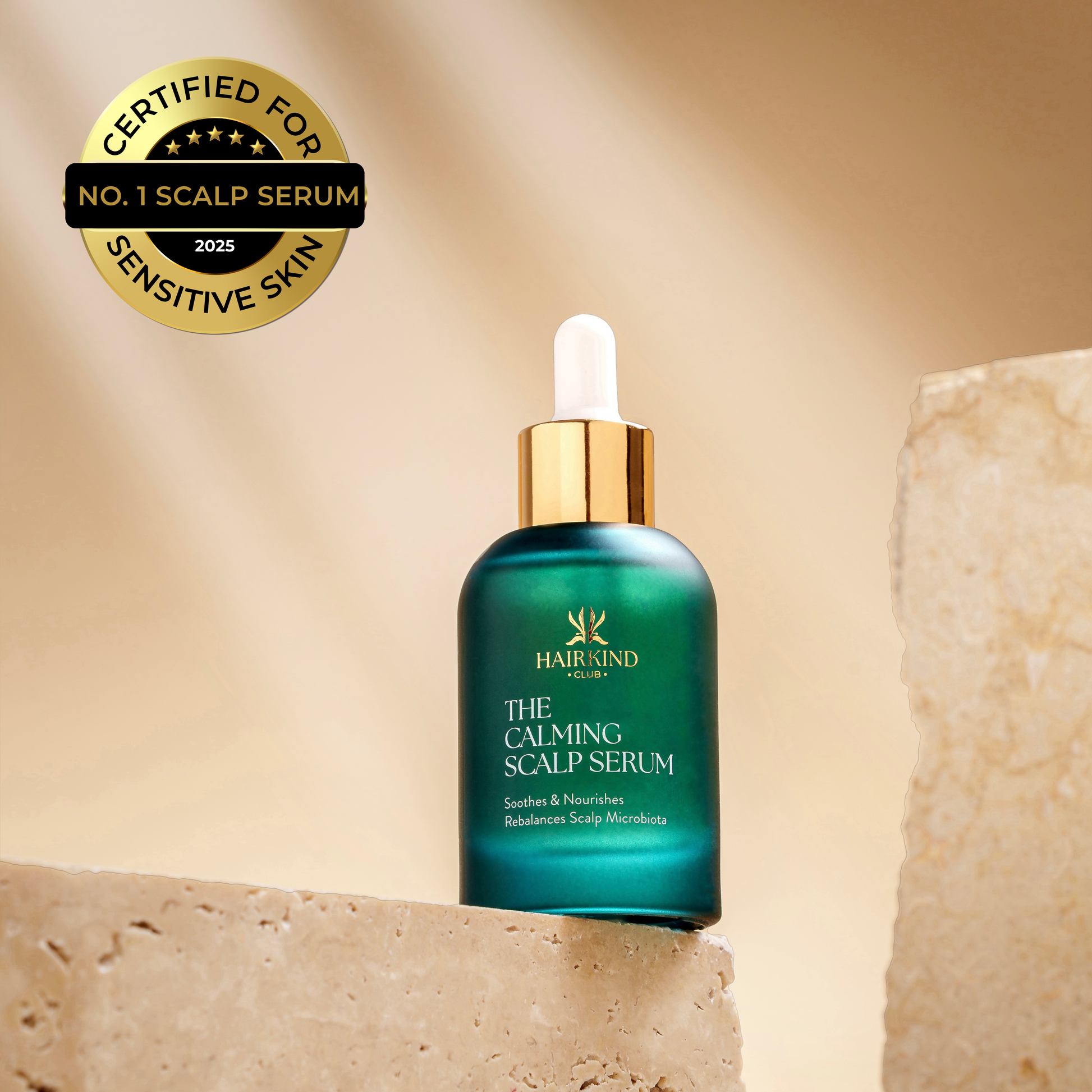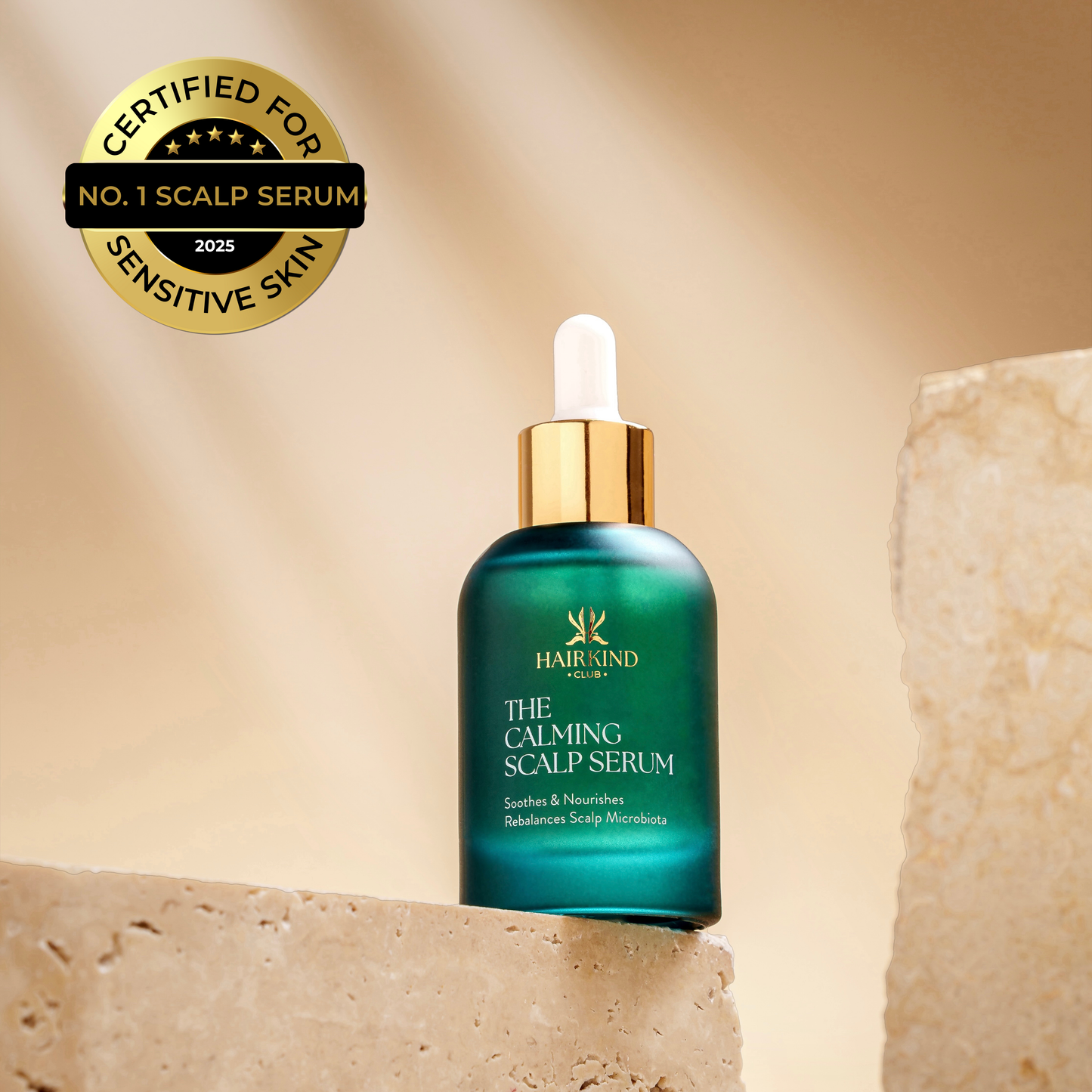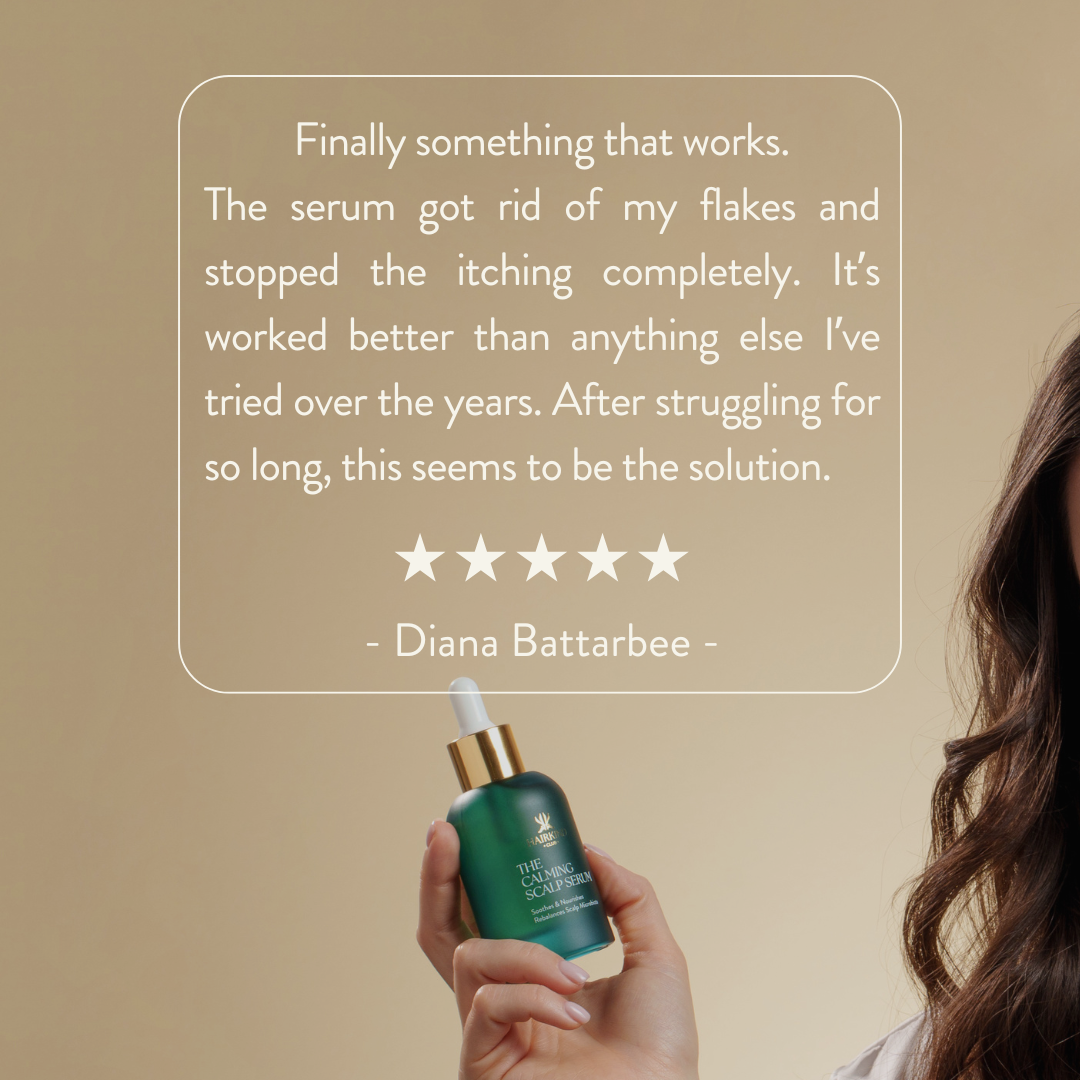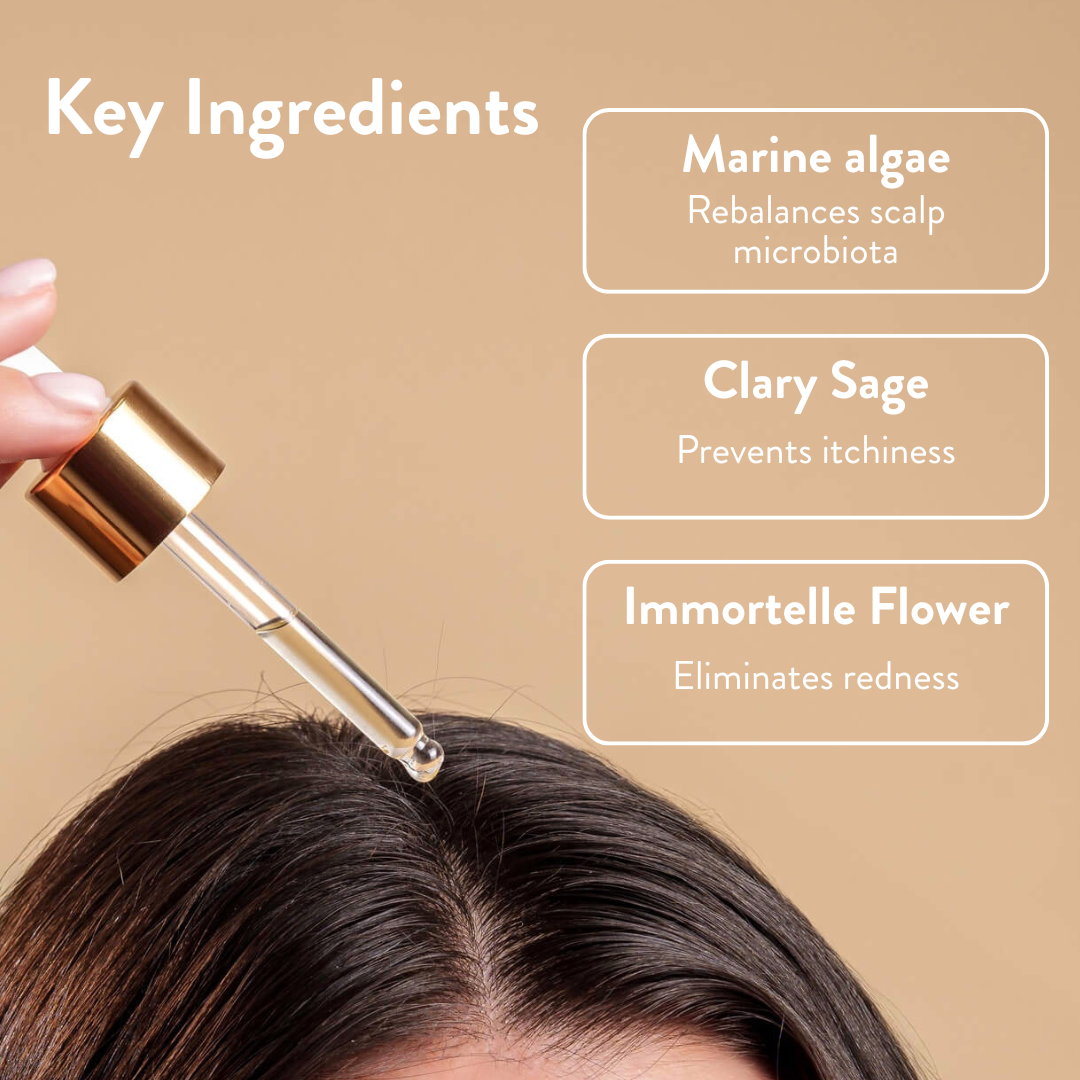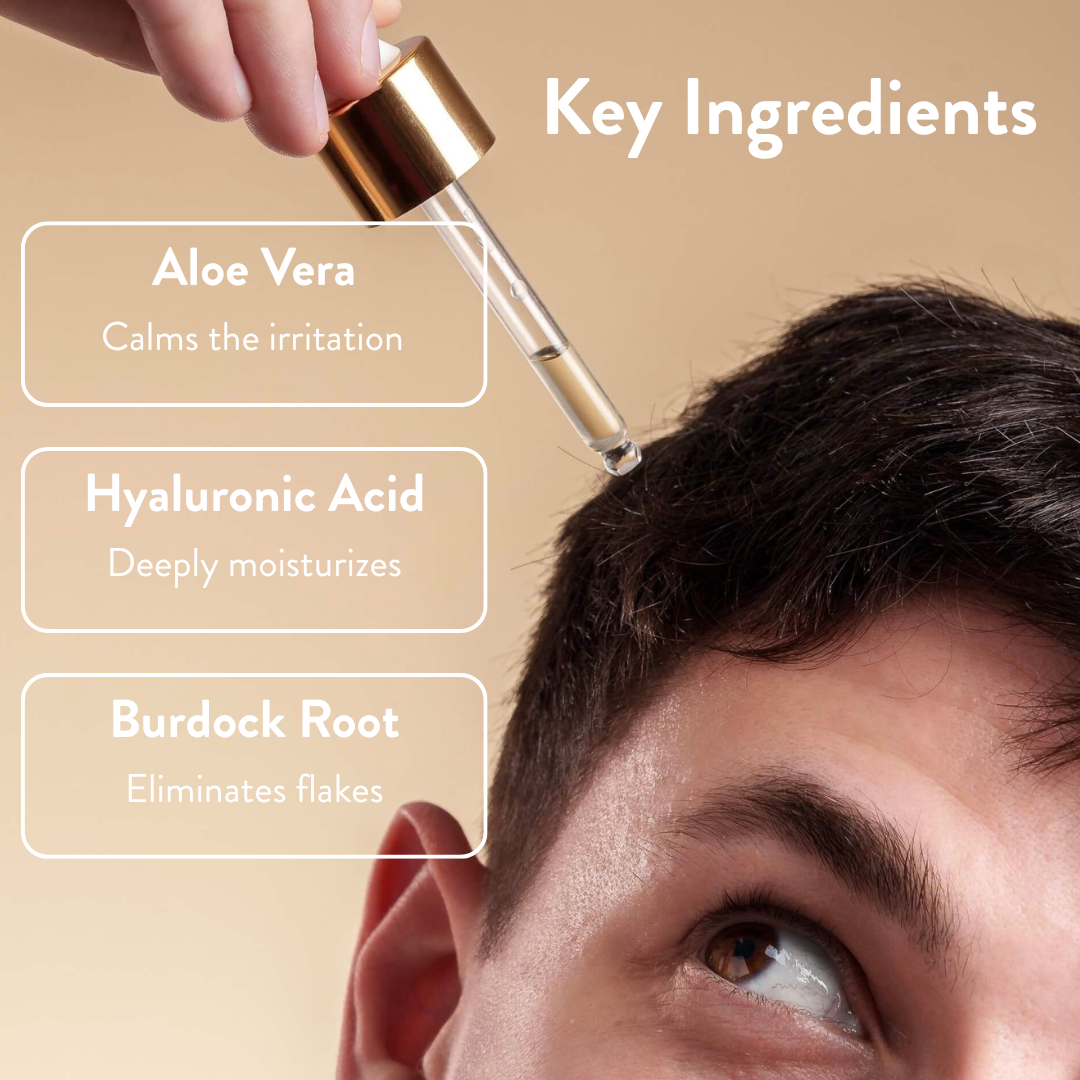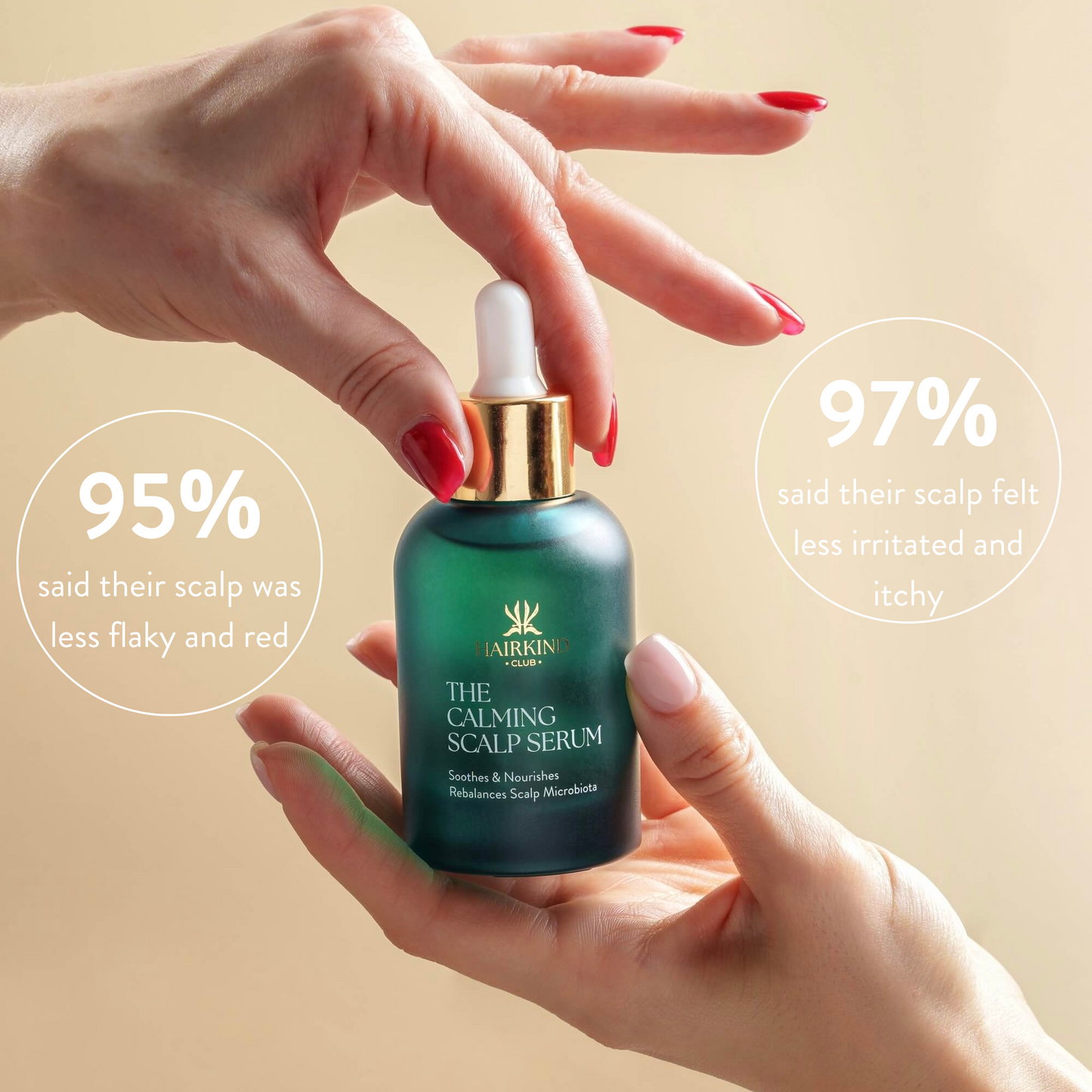Seborrheic dermatitis and dandruff are common scalp conditions that can be both frustrating and embarrassing. While these conditions have various causes, research indicates that stress plays a significant role in triggering and exacerbating their symptoms.
The Connection Between Stress and Seborrheic Dermatitis
Seborrheic dermatitis is a chronic inflammatory skin disorder associated with the Malassezia yeast. This condition typically targets the scalp and other areas of the body rich in sebaceous glands, such as the scalp, face, and back. Symptoms include itchy, flaky, and red patches on the affected skin.
If you have seborrheic dermatitis you might often observe that these symptoms worsen during periods of stress. For example, dealing with demanding work assignments, uni exams, a difficult boss, or uncooperative colleagues can lead to noticeable flare-ups. This observation is supported by scientific research, which has established a clear link between stress and the exacerbation of seborrheic dermatitis symptoms.
How Stress Aggravates Dandruff and Seborrheic Dermatitis

Stress can disrupt the body's immune system and increase the production of inflammatory markers, leading to worsened symptoms of seborrheic dermatitis and dandruff. Stress also affects sleep patterns and overall lifestyle, creating a cycle where the skin condition causes stress, and stress in turn aggravates the skin condition.
During stressful periods, the body shifts from a state conducive to healing and digestion to a fight-or-flight mode. This change hampers the skin's ability to heal and recover, intensifying the symptoms of seborrheic dermatitis.
If you constantly feel stressed and overwhelmed by your seborrheic dermatitis symptoms, it might be wise to consult both a dermatologist and a mental health professional.
10 Natural Ways to Reduce Stress and Manage Seborrheic Dermatitis
Everyone deals with stress at some point in their lives. While we can't prevent them from happening, we are in control of how we respond to them.
Managing stress is crucial in controlling seborrheic dermatitis and dandruff. Here are ten natural methods to help you reduce stress and improve your scalp health:
1. Proactively Manage Stress
Identify and eliminate stressors before they arise. Set healthy boundaries, reduce exposure to negative media, and prioritize activities and relationships that bring you joy and peace.
2. Practice Deep Breathing Exercises

Breathing exercises can activate the parasympathetic nervous system, promoting relaxation and reducing anxiety, anger, or confusion. Try out some of the following techniques:
- Diaphragmatic breathing:
- Lie down on a flat surface with a pillow under the head or take a comfortable position on your favourite couch
- Place one hand on the middle of the upper chest
- Place the other hand on the stomach, just beneath the rib cage but above the diaphragm
- To inhale, slowly breathe in through the nose, drawing the breath down toward the stomach. The stomach should push upward against the hand, while the chest remains still
- To exhale, tighten the abdominal muscles and let the stomach fall downward while exhaling through pursed lips. Again, the chest should remain still
- 4-7-8 breathing:
- Empty your lungs of air
- Breath in quietly through the nose for 4 seconds
- Hold the breath for 7 seconds
- Exhale forcefully through the mouth making a “whoosh” sound for 8 seconds
- Repeat the cycle up to 4 times
- Box breathing
- Sit with your back supported in a comfortable chair and your feet on the floor
- Close your eyes and then breathe in through your nose while counting to 4 slowly, feeling the air enter into your lungs
- Hold your breath while counting slowly to 4, trying not to clamp your mouth or nose shut
- Slowly exhale for 4 seconds
- Wait 4 seconds
- Repeat steps 1 to 3 at least 3 times
3. Meditate Regularly

Meditation can significantly reduce stress and improve overall well-being. Practices such as focused meditation, body scan meditation, and mindfulness meditation can help you stay present and calm, reducing the impact of stress on your skin.
Focused meditation: let go of distracting thoughts and concentrate on a single object, sound, or sensation, such as your breath or a mantra
Body scan meditation: lay down and focus on each region of your body. Note how you feel and let go of any tension in that area
Mindfulness meditation: pay attention to your thoughts and feelings without judging or responding to them
4. Use Essential Oils

Essential oils like lavender, chamomile, and ylang-ylang have calming properties that can help reduce stress. Use them in a diffuser, as part of a massage oil, add them to a warm bath for relaxation, or dilute and rub one drop on each wrist to wear the smell whenever you go.
5. Build Strong Social Connections

Spending time with loved ones and building strong social connections can increase levels of oxytocin, serotonin, and dopamine while reducing cortisol levels. Social support is vital for mental and emotional health, providing comfort and reducing the risk of depression.
6. Connect with Nature

Spending time in nature can reduce stress levels and improve mood. Outdoor activities like walking in the park, hiking, or simply sitting in a garden can provide a therapeutic escape from daily stressors and lead to lower cortisol levels.
7. Engage in Physical Activity

Exercise is a powerful stress reliever. Physical activities can release endorphins, improve sleep, and provide a sense of accomplishment, all of which help reduce stress.
If you want to increase your strength you could try weightlifting, bodyweight exercises, and resistance band exercises. On the other hand, if you're seeking to improve your flexibility and balance, you can go for yoga, pilates, or even horse riding.
Apart from that, exercise can lead to better sleep at night, which, in turn, can improve how well you cope with stress during the day.
8. Ensure Adequate Sleep

Quality sleep is essential for stress management and overall health. Insufficient sleep can impact our memory, attention, and cognitive function. Studies have also shown a strong correlation between poor-quality sleep or sleep deprivation and increased stress levels. Moreover, insufficient sleep can influence our mood, making us more susceptible to agitation, irritation, and nervousness. This increases the likelihood of experiencing stress.
To ensure you are getting enough rest during the night establish a regular sleep schedule, create a restful sleep environment, and avoid substances that can interfere with sleep, such as caffeine and alcohol.
Although not many people can fit napping in their schedules the benefits you're getting from a short nap are substantial, including improved mood, enhanced alertness, increased cognitive performance, and improved memory.
You should keep naps short, at best 20 minutes long, no longer than 30 minutes. You don’t want to wake up in the middle of deep sleep or you’ll be even groggier than when you started.
9. Tap into Your Flow State

Engage in activities that absorb your attention and put you in a flow state. This state of deep focus and enjoyment can help alleviate stress and boost your mood. It is often seen in athletes, scientists, or artists who are completely absorbed in their tasks, enabling them to excel in their work.
Practice entering your flow state by engaging with an activity you really enjoy, such as playing an instrument, creating art, or reading books about your favourite topics.
10. Manage Your Seborrheic Dermatitis

Seborrheic dermatitis and dandruff can lead to stress, and stress can worsen your symptoms. A never ending cycle if you don't take action to prevent it.
Topical treatments, such as steroid creams and antifungal agents are most commonly used when treating this condition.
Natural remedies like sea salt, apple cider vinegar and MCT oil can also help alleviate your symptoms.
If you're searching for a more effective, yet simple approach to treating your seborrheic dermatitis, The Calming Scalp Serum is an excellent choice. The serum contains a blend of natural ingredients that work together to combat symptoms of seborrheic dermatitis and dandruff.
It contains xylitol which helps disrupt the Malassezia biofilm protecting the fungus from antifungal agents. Once this barrier is weakened, the grapefruit essential oil and dead sea salt in the formulation clear the Malassezia fungus away.
Other ingredients in the serum, such as fermented aloe, immortelle floral water and hyaluronic acid, help to combat the itch, inflammation, and redness, as well as soothe, hydrate, and nourish the skin. ↓



